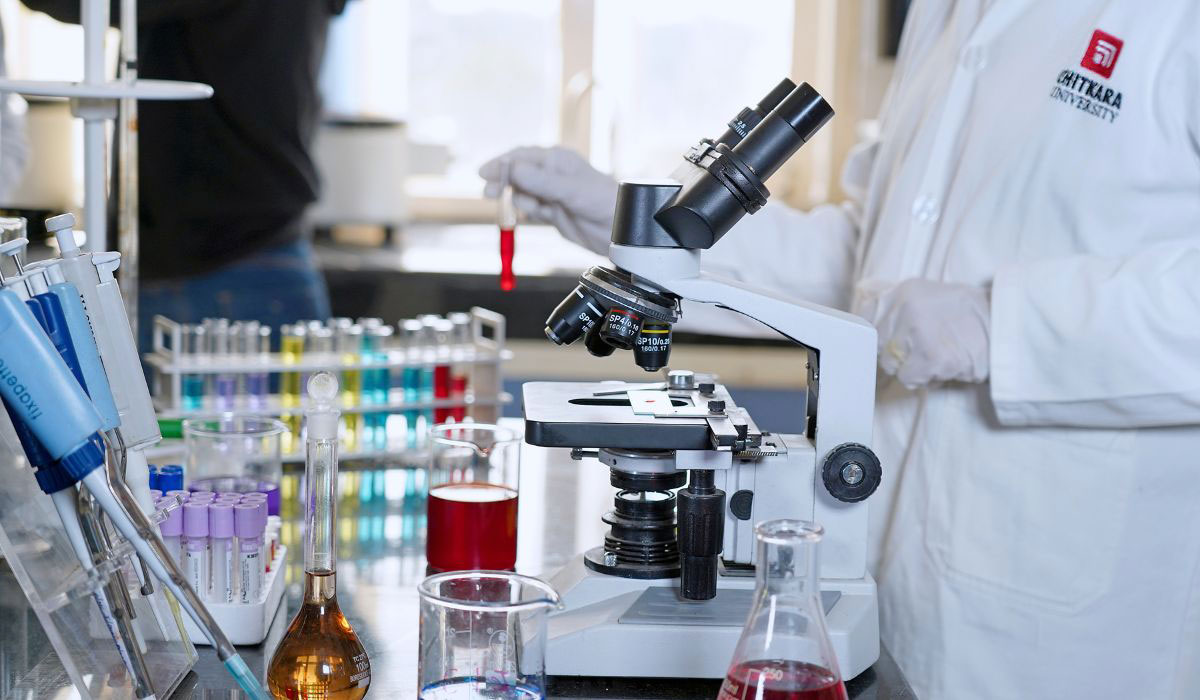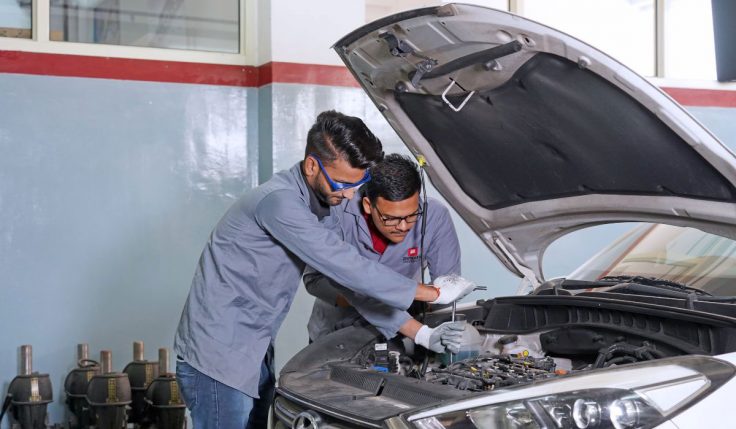The realm of healthcare is a complex and changing environment, and medical laboratory scientists play a critical role in every diagnosis, treatment, and medical discovery. These unsung heroes perform an important part in the healthcare system, working tirelessly in laboratories to analyse and interpret patient samples, greatly contributing to patient care and illness treatment. If you love science, have an eye for detail, and want to make a difference in people’s lives, a Bachelor of Science (B.Sc.) in Medical Laboratory Science may be the right path for you.
Understanding Medical Laboratory Science:
The B.Sc. in Medical Laboratory Science is a comprehensive program that prepares students to perform a wide range of laboratory tests on patient samples. These tests help doctors diagnose, treat, and monitor a variety of medical disorders. Medical laboratory experts are involved in every stage of the testing process, from blood and urine analysis to molecular diagnostics and microbiology, assuring precise results that influence medical choices.
Promising Career Opportunities:
Upon completing the B.Sc. in Medical Laboratory Science program, graduates can explore career opportunities as Cytology Technologists, Dermatology / STD / Leprosy Lab Technologists, Forensic Technologists, Haematology Technologists, Histopathology Technologists, Phlebotomists, and more. These professionals are in high demand in various healthcare settings.
Diverse Career Opportunities:
Embarking on a B.Sc. in Medical Laboratory Science opens up a world of diverse career opportunities across various healthcare settings. Here are some of the exciting paths you could explore:
Clinical Laboratory Scientist: As a clinical laboratory scientist, you’ll work in hospital laboratories, clinics, and diagnostic centers, performing tests on patient samples and providing critical data for physicians to make informed diagnoses.
Research Scientist: Medical laboratory science graduates can also contribute to medical research, conducting experiments, analyzing data, and aiding in the development of new medical technologies and treatments.
Blood Banking Specialist: Blood banks are crucial in providing safe and compatible blood products for transfusion. Specialists in this area ensure the proper typing, testing, and storage of blood.
Microbiologist: Microbiologists study microorganisms, such as bacteria, viruses, and fungi, and play a vital role in diagnosing infectious diseases and developing treatments.
Molecular Diagnostician: In this role, you’ll work with cutting-edge techniques to analyze DNA and RNA, aiding in the diagnosis of genetic disorders, cancers, and infectious diseases.
Quality Control Analyst: Pharmaceutical and biotechnology companies hire medical laboratory science graduates to ensure the quality and safety of their products through rigorous testing and analysis.
Public Health Officer: Medical laboratory scientists can also contribute to public health initiatives, tracking disease outbreaks, monitoring water and food safety, and collaborating in health policy decisions.
Advantages of Pursuing B.Sc. in Medical Laboratory Science:
Hands-On Experience: This program offers hands-on training in real laboratory settings, allowing students to gain practical skills that are directly applicable to their future careers.
High Demand: The demand for skilled medical laboratory scientists continues to rise as advancements in medical technology drive the need for accurate and timely diagnostics.
Contribution to Healthcare: Medical laboratory scientists play a crucial behind-the-scenes role in patient care, making a meaningful impact on health outcomes.
Continuous Learning: The field of medical laboratory science is constantly evolving, providing opportunities for professionals to engage in lifelong learning and stay updated with the latest advancements.
Global Opportunities: Medical laboratory science is a field in demand worldwide, offering opportunities for international careers and collaborations.
In conclusion, a B.Sc. in Medical Laboratory Science offers a gateway to a rewarding career that combines scientific exploration with healthcare impact. By joining the ranks of medical laboratory scientists, you’ll be at the forefront of medical advancements, contributing to patient well-being and healthcare excellence. So, if you’re ready to explore the intricate world of diagnostics and analysis, this could be the path for you.
Read this blog post: Which Allied Health Course Will Secure Your Future? Exploring Promising Career Paths
In the realm of healthcare, a critical yet often overlooked role is that of a medical laboratory scientist. Behind every accurate diagnosis, treatment plan, and medical breakthrough lies the meticulous work of these professionals. Chitkara University understands the significance of this role and has designed a comprehensive Bachelors in Medical Laboratory Science program to prepare skilled and knowledgeable individuals for this crucial field.
The B.Sc. in Medical Laboratory Science at Chitkara University is a 4-year undergraduate program that merges theoretical learning with practical experience. This hands-on program is tailored to equip students with the expertise necessary to conduct a wide range of diagnostic tests, contributing to the identification, treatment, and prevention of diseases. The program features a one-year compulsory rotatory internship with industry partners, adding real-world exposure to the academic foundation.
In a world where medical advancements are driven by precise diagnostics, Chitkara University’s B.Sc. in Medical Laboratory Science program stands as a beacon of education that prepares future diagnostic professionals for the challenges and opportunities in the evolving healthcare landscape. Be a part of India’s top-rated university and embark on a journey to shape the future of healthcare through accurate diagnostics and analytical excellence.






